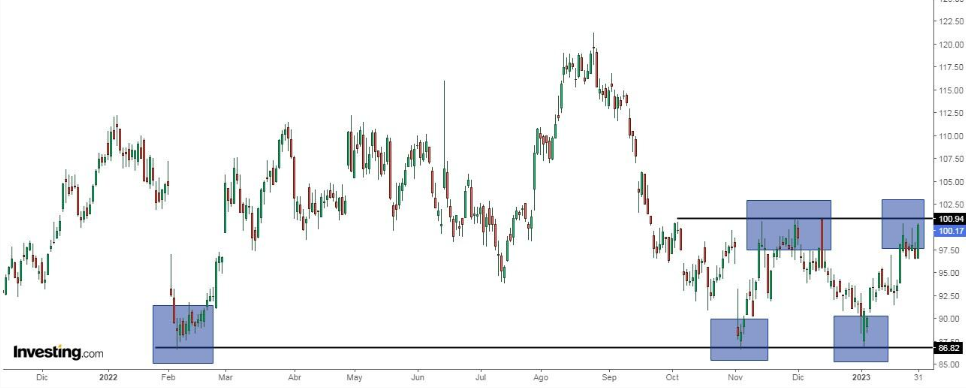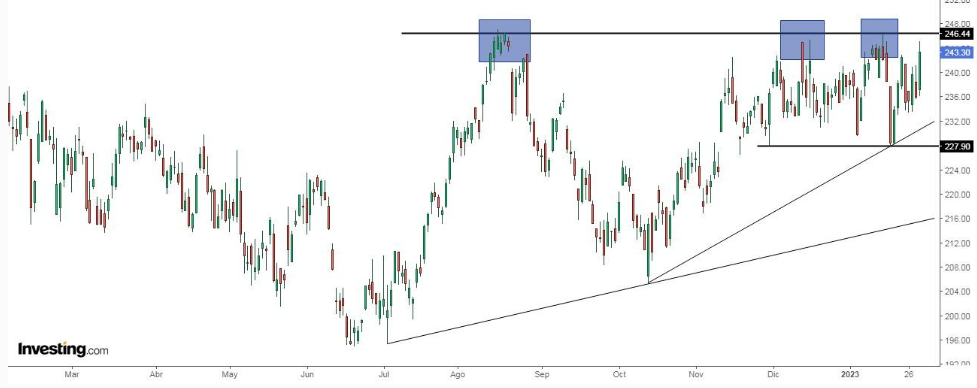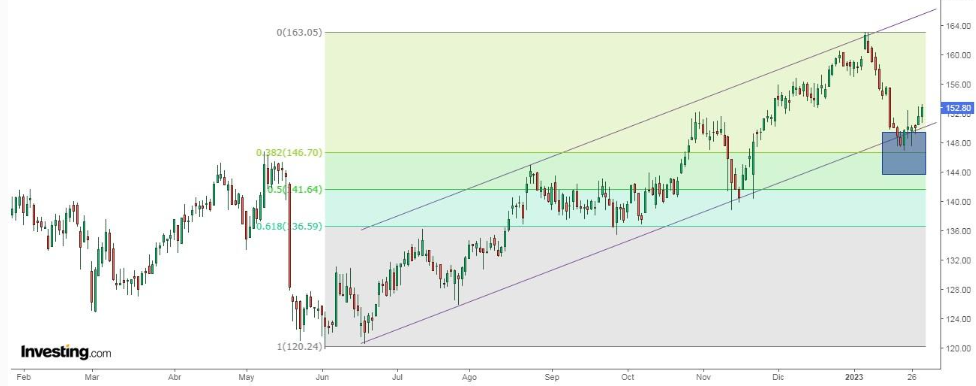- Dividend Aristocrats are companies that increased their dividend yield for at least 25 consecutive years
- Three new companies joined this group yesterday
- Let's take a look at these stocks and see why they make a great addition to your portfolio
Let's first have a look at the nature of the dividend aristocrats and the 3 stocks that joined the group yesterday. These are 3 stocks in an uptrend and have been on a dividend growth streak between 25 and 42 consecutive years.
The Nature of Dividend Aristocrats
These are companies that pay dividends to their shareholders and have to meet several requirements, such as:
- Raising dividends for at least 25 consecutive years.
- Be included in the S&P 500 index.
- Have a market capitalization of at least $3 billion.
- Have an average daily trading volume of at least $5 million.
The main dividend aristocrat index is the S&P 500 Dividend Aristocrats, launched in 2005. Dividend Aristocrats are solid, reliable, and liquid companies with a track record of consecutive dividend payouts and growth over many years.
3 New Stocks Were Added to the Index Yesterday
To be a Dividend Aristocrat, a company does not have to pay a high dividend to its shareholders. Still, it does have to pay a consistent and rising dividend for at least 25 consecutive years. That's not very long when you look at some of the companies in this index that have raised their respective dividends for 60 years.
These include 3M Company (NYSE:MMM), Coca-Cola (NYSE:KO), Colgate-Palmolive (NYSE:CL), Dover (NYSE:DOV), Emerson (NYSE:EMR), Genuine Parts Co. (NYSE:GPC), Johnson & Johnson (NYSE:JNJ), and Procter & Gamble (NYSE:PG).
Let's look at the three stocks added to the aristocracy yesterday using information from the Investing Pro tool.
1. C.H. Robinson Worldwide
C.H. Robinson Worldwide (NASDAQ:CHRW) provides transportation, management, brokerage, and warehousing services.
Headquartered in Eden Prairie, Minnesota, the company has more than 300 offices, more than 15,000 employees in North America, Europe, Asia, and South America, and contracts with more than 66,000 carriers.
The company has increased its dividend for 25 consecutive years, with a yield of +2.2%. The last increase was in November last year. Earnings per share (EPS) are expected to be $1.34 in the next earnings report.

From a technical point of view, the support formed in February 2022 is working well. It prevented falls and triggered rallies when it was touched in November 2022 and January 2023.
It is trying to break through resistance at $100.74, and once it does, we should see a continuation of the rally.
2. Nordson
Nordson (NASDAQ:NDSN) is a manufacturer of chemical processing equipment. It produces equipment used to test and inspect electronic components and medical devices. Headquartered in Westlake, Ohio, the company has operations in 30 countries.
The dividend yield is +1.1% and has been increasing for 42 years. The last increase was in August last year. On Feb. 21, the company will announce its results for the last quarter, and earnings per share (EPS) are expected to be $1.98 per share.

From a technical point of view, the stock is in an upward trend and trading within its bullish channel.
It is trying to break the resistance at $245.08; once it does, we should see a continuation of the uptrend. So far, it has failed to do so in December 2022 and January 2023.
3. J.M. Smucker Company
J.M. Smucker Company (NYSE:SJM) manufactures peanut butter and jelly, beverages, and other products. The company is headquartered in Ohio, USA.
It has a dividend yield of +2.7%. It has increased its dividend for 25 years, most recently in July last year. The next dividend payment date is Mar. 1, and shares must be held before Feb. 9 to be eligible.
On Feb. 28, the company will announce its results for the last quarter. Earnings per share (EPS) are expected to be $2.13.

From a technical point of view, the stock has been rising in a bullish channel since the annual lows formed last June. It has always respected the lower base of this channel.
Disclosure: The author does not own any of the securities mentioned.
